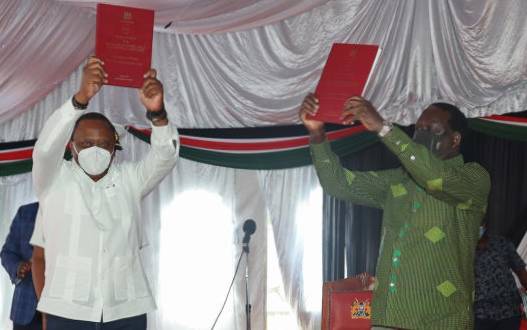×
The Standard e-Paper
Fearless, Trusted News

President Uhuru Kenyatta and former Prime Minister Raila Odinga display copies of the final report of the Building Bridges Initiative (BBI) after they received them from the Taskforce team at Kisii State Lodge. [Photo: Standard]
Kenyans will have an influential president with sweeping powers to hire and fire his Cabinet at will, should proposed changes pass through a referendum.